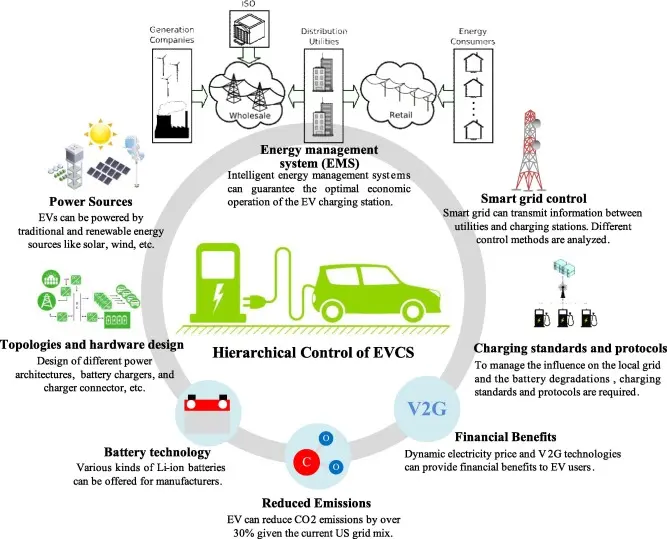The electric vehicle (EV) charging infrastructure market is experiencing unprecedented growth, making it crucial for manufacturers to optimize their supply chain operations. This comprehensive guide explores how companies can effectively leverage their supply chain strengths in EV charger manufacturing to maintain competitive advantage and meet rising demand.
Understanding the EV Charger Manufacturing Landscape
The rapid adoption of electric vehicles has created an urgent need for reliable charging infrastructure worldwide. When examining the current state of EV charger manufacturing, several key factors emerge that make supply chain optimization essential for success.
Market Dynamics and Growth Projections
The global EV charging infrastructure market is projected to reach $147.94 billion by 2030, growing at a CAGR of 31.8%. This explosive growth presents both opportunities and challenges for manufacturers leveraging supply chain strengths in EV charger manufacturing. Companies must carefully balance capacity expansion with supply chain resilience to meet market demands.
Key Components in EV Charger Supply Chains
Understanding the critical components and their supply chains is fundamental to optimizing manufacturing operations:
Power Electronics
Power electronics form the heart of EV charging systems, including:
- Power conversion modules that require specialized semiconductor components
- Control boards featuring microprocessors and sophisticated circuitry
- Thermal management systems essential for maintaining optimal charging performance
- Safety and monitoring components ensuring reliable operation
Structural Components
The physical infrastructure includes:
- Weather-resistant enclosures designed for various environmental conditions
- Mounting systems and brackets for different installation scenarios
- Cable management systems ensuring durability and user safety
- Display interfaces and user control panels
Leveraging Supply Chain Strengths in EV Charger Manufacturing: Strategic Approaches
To excel in this competitive market, manufacturers must focus on several key strategies:
1. Vertical Integration
Successful manufacturers are increasingly adopting vertical integration strategies to:
- Control critical component production in-house
- Reduce dependency on external suppliers
- Maintain consistent quality standards
- Accelerate product development cycles
2. Supply Chain Digitalization
Digital transformation plays a crucial role in leveraging supply chain strengths in EV charger manufacturing. Implementation of advanced technologies includes:
- IoT sensors for real-time inventory tracking
- AI-powered demand forecasting systems
- Blockchain solutions for supply chain transparency
- Digital twin technology for production optimization
Building Resilient Supply Networks
Strategic Supplier Partnerships
Developing strong relationships with key suppliers is essential for:
- Securing priority access to critical components
- Collaborating on innovation and product development
- Establishing flexible capacity arrangements
- Implementing joint quality improvement initiatives
Geographic Diversification
Smart manufacturers are diversifying their supply base geographically to:
- Minimize regional supply disruption risks
- Reduce transportation costs and carbon footprint
- Access local markets more effectively
- Comply with various regional regulations
Quality Control and Compliance
Standards and Certification
Maintaining high quality standards while leveraging supply chain strengths in EV charger manufacturing requires:
- Rigorous supplier qualification processes
- Regular quality audits and inspections
- Compliance with international safety standards
- Continuous improvement programs
Testing and Validation
Comprehensive testing protocols include:
- Component-level testing for reliability
- System integration testing for compatibility
- Environmental testing for durability
- Safety testing for regulatory compliance
Sustainable Manufacturing Practices
Environmental Considerations
Sustainability has become a core focus when leveraging supply chain strengths in EV charger manufacturing:
- Implementation of circular economy principles
- Use of recycled materials where possible
- Energy-efficient manufacturing processes
- Waste reduction initiatives
Carbon Footprint Reduction
Manufacturers are adopting various strategies to minimize environmental impact:
- Local sourcing to reduce transportation emissions
- Renewable energy use in manufacturing facilities
- Eco-friendly packaging solutions
- End-of-life product recycling programs
Future Trends and Innovation
Emerging Technologies
The future of EV charger manufacturing will be shaped by:
- Advanced materials development
- Smart charging capabilities
- Vehicle-to-grid integration
- Wireless charging solutions
Market Evolution
Manufacturers must prepare for:
- Increasing charging speeds and power requirements
- Enhanced user interface features
- Greater integration with smart grid systems
- Expanded compatibility across vehicle brands
Cost Optimization Strategies
Economies of Scale
Successfully leveraging supply chain strengths in EV charger manufacturing requires:
- Optimized production batch sizes
- Automated manufacturing processes
- Streamlined logistics operations
- Efficient inventory management
Value Engineering
Continuous improvement initiatives focus on:
- Component cost reduction without compromising quality
- Design optimization for manufacturing efficiency
- Material substitution where appropriate
- Process automation opportunities
Risk Management and Mitigation
Supply Chain Risks
Manufacturers must address various risks including:
- Component shortage risks
- Geopolitical disruptions
- Transportation delays
- Quality control issues
Mitigation Strategies
Effective risk management involves:
- Multiple supplier relationships
- Buffer inventory management
- Alternative transportation routes
- Robust quality control systems
Conclusion
Leveraging Supply Chain Strengths in EV Charger Manufacturing manufacturers must build resilient, efficient, and sustainable supply chains while balancing cost optimization with quality control. Maintaining flexibility to adapt to market changes and technological advances is crucial. Focusing on innovation and strategic partnerships will enable manufacturers to maintain competitive advantages in this rapidly growing market.






